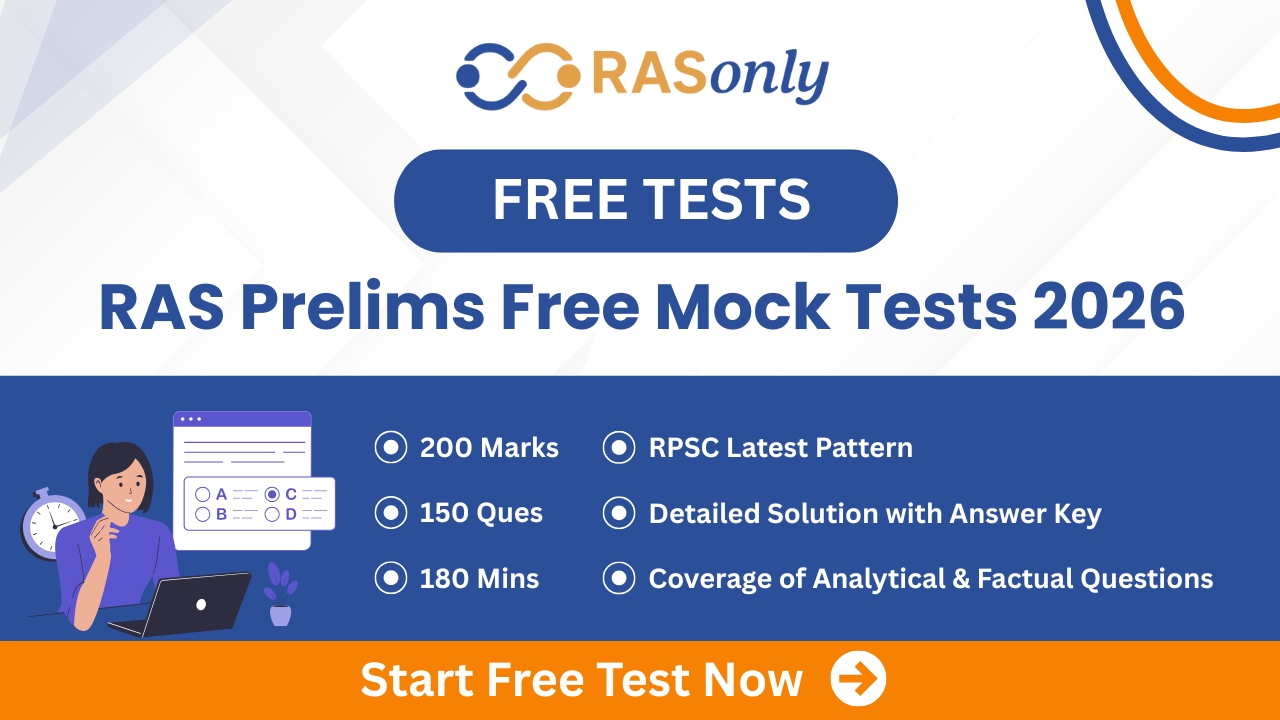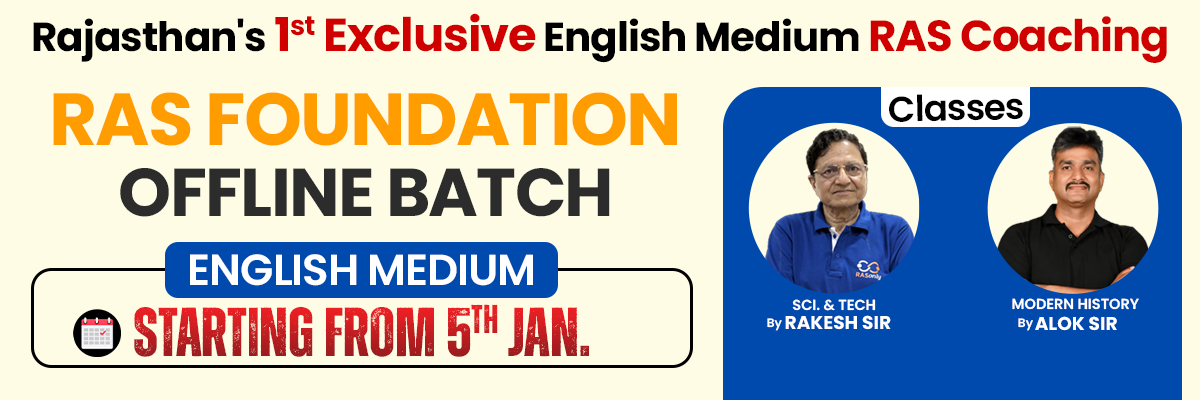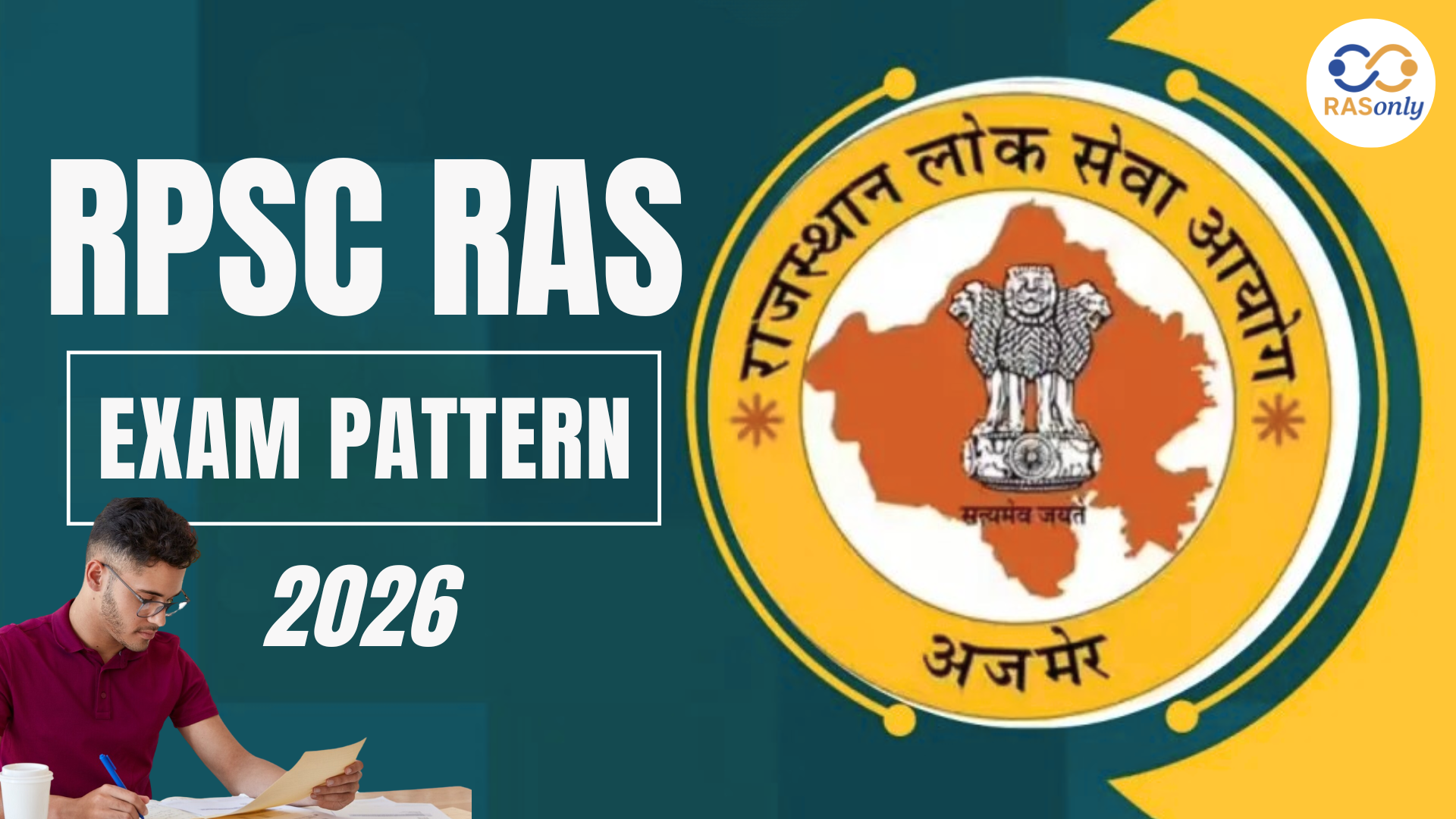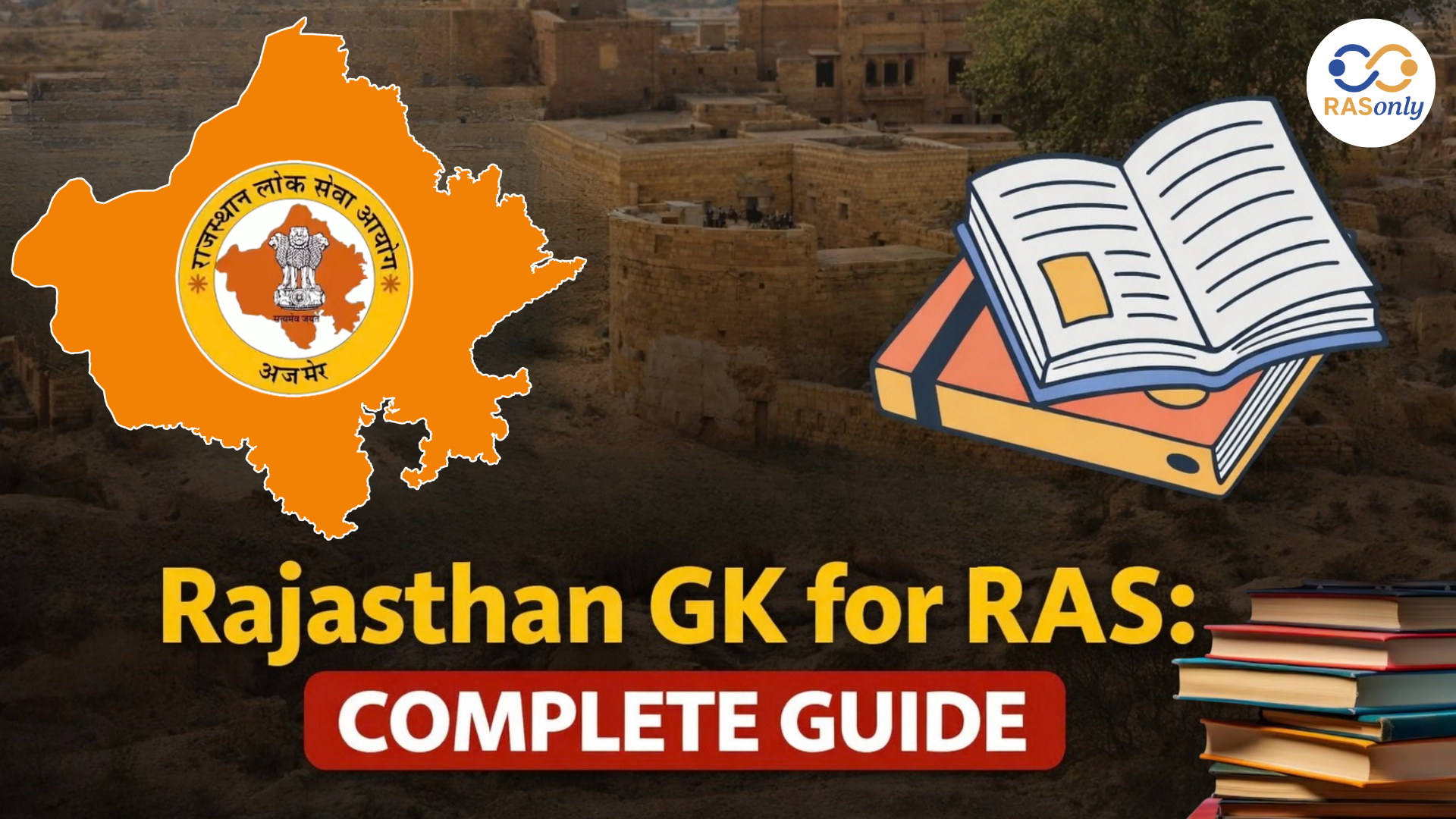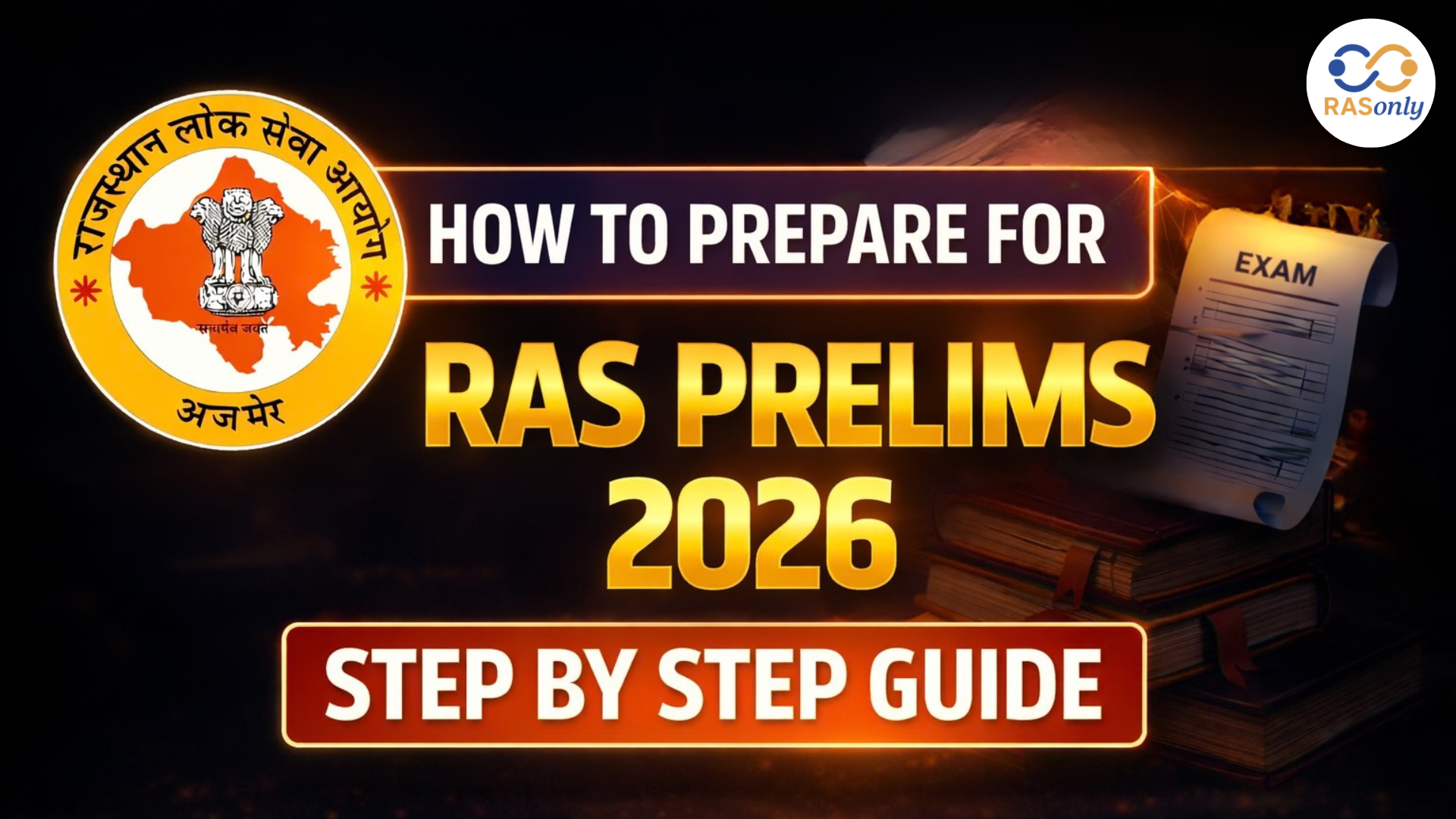RPSC RAS 2026 Subject Wise Exam Pattern for Prelims, Mains & Interview Details
- >
- RAS Preparation Resources
- >
- Rajasthan Right to Hearing Act, 2012
Rajasthan Right to Hearing Act, 2012

Get in Touch with RASonly!

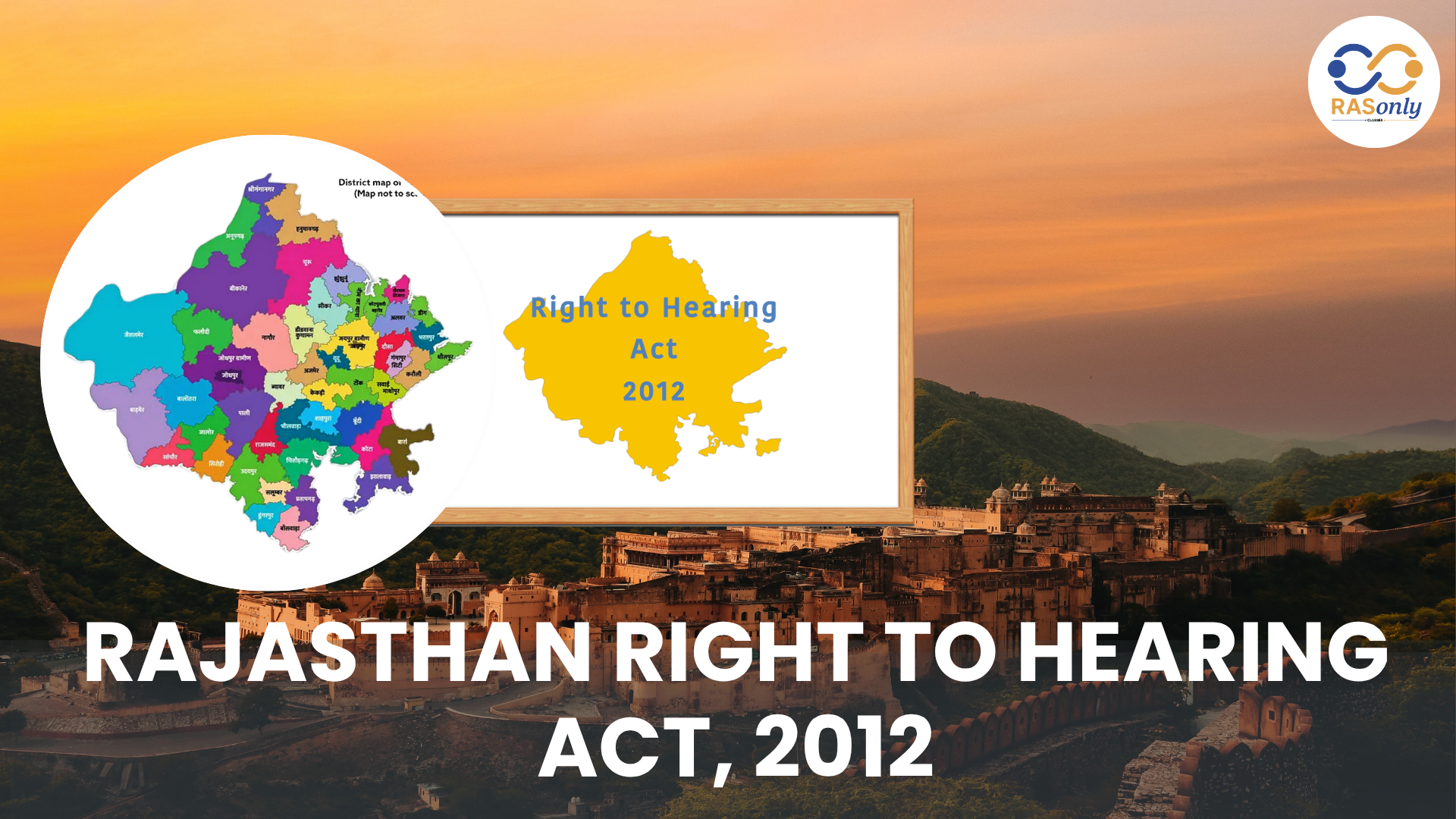
On 1 st August 2012, Rajasthan was the first state in India to have activated the Right to Hearing Act. It supplements Rajasthan Guaranteed Delivery of Public Services Act, 2011 through inclusion of other services and schemes. The Act has also provided that citizen grievances should be addressed and solved within a stipulated time by specially constituted Public Hearing Officers (PHOs). It gives a three level grievance redress platform with specific time frames within which the problem should be resolved and appealed against. Although well-intentioned, the implementation issues such as absenteeism among officers and the low punishments are still there, and the changes need to be made as soon as possible.
Introduction
- In order to provide the citizens with an opportunity to get their grievances addressed in time, the Rajasthan Government passed the Rajasthan Right to Hearing Act, 2012 so as to check responsive governance.
- It also makes the right to hear a right institutionalized, through the provision of organized arrangements in form of PHOs, appeals, and LSSKs that guarantee administrative responsibility and citizen convenience.
Key Points for RAS Mains
Goals of the Act
- Make sure grievances of the public are heard and addressed on time.
- Give legal status to the Right to be Heard.
- Increase accountability and transparency in the provision of public services.
- Make grievance redressal more easily accessible by means of Information & Facilitation Centres.
Key Definitions
|
Term |
Definition |
|
Complaint |
Any application by a citizen seeking benefit or relief related to a scheme/law/policy, except those under judicial/quasi-judicial jurisdiction. |
|
Right to Hearing |
Right to get an opportunity of hearing within a stipulated time and know the decision. |
|
PHO |
Public Hearing Officer appointed under Section 3. |
|
Stipulated Time Limit |
The maximum allowed time for resolution of complaint or appeal. |
|
Information and Facilitation Centres |
Customer care, help desks, call centres set up to help citizens file and track grievances. |
Salient Features
The Hearing Officers (PHOs)
- Specific complaint redressal officers (e.g. Patwari, Gram Sevak).
- May request support of other officials.
- It is mandated to address grievances within a lapse of time (15 days).
Right to Hearing, (Section 4)
- Citizens are entitled to fair hearing within the set limit.
- PHO will be required to give written decisions, accept, reject, refer or make alternative suggestions.
- Every decision is time, recorded and documented.
Information and Facilitation Centres (Section 5)
- Such centres as Lok Sunwai Sahayata Kendras (LSSKs) serve as help points.
- Faster processing of grievances through technology.
- Any governmental organisation has the role of enhancing IT-based redressal of grievances.
Scope of the act
- The extent of the Act: The Act is applicable in the following list simply because the responsibility lies on the shoulders of the candidates who will have to possess the required qualifications to be able to fulfill their duties.
- Constitutes all the public schemes, and services, which are not covered under the act on public services guarantee, 2011.
- Allows the citizens to lodge complaints regarding delay or failures to receive, and/or contravention of the implementation of any government scheme or policy.
Three-Level Grievance Redressal Structure
|
Level |
Authority |
Timeline |
Details |
|
First Level |
Public Hearing Officer (PHO) |
15 days |
Grievance submitted at Sugam Centre. PHO must resolve or reject with reasons. |
|
Second Level |
First Appellate Authority |
21 days |
Appeal within 30 days of PHO’s decision. Mandatory resolution. |
|
Third Level |
Second Appellate Authority |
21 days |
Appeal within 30 days of first appeal decision. Can impose penalties on PHO. |
1. First Appeal
- Appealed before the First Appellate Authority within 30 days.
- Applicable if:
- No hearing notwithstanding a due time.
- Agriculturalists were displeased by the choice of PHO.
- The appeal window may be abundantly expanded by authority on a reasonable basis.
2. Second Appeal
- Appealed again to the Second Appellate Authority within 30 days of the appeals verdict.
- Is a direct filer in case of:
- PHO is in contempt of First Appellate Authority.
- The First Appellate Authority takes time in giving judgment.
3. Authorities of Appellate Powers
- Analogous to civil courts: CPC, 1908:
- Summon witnesses
- Issue of request Letters Calling Up of documents
- Evaluate personal decision making
- Issue commissions
Provision of Penalties (Section 7)
- A fine of 500rs-5000rs will be imposed on PHO in case of unreasonable delay.
- Penalty could be reclaimed through salary withdrawal.
- A disciplinary measure suggested against serious negligence by PHOs or appellate authorities in the case of persistent negligence.
Revision (Section 8)
- Within 60 days, a revision against penalty needs to be sent to an officer named by the State Government by PHO or First Appellate Authority.
Safety & juridical System
- Protection in Good Faith: No litigations against the acts made in good faith (Section 9).
- Bar of Civil Court Jurisdiction (Section 10): Civil courts are not empowered to meddle with the proceedings according to this Act.
- The other existing laws remain supplementary to the Act (Section 11).
Rule-making and Implementation
- State Government has power to:
- Rules and regulations on notification.
- Establish centres.
- Create 2 years of resolution of imparting impediments at the onset (Section 13).
Problems and Restrictions
- Officer Absenteeism: PHOs tend to be not in the office at the hours of the population.
- Slow Process: The hearings of the public are not conducted regularly at the tehsil or village level.
- Poor Penalty Catch Mechanism: Rs. 500-Rs. 5000 punishment is negligible to guarantee the law.
- Infrastructure gaps: absence of working LSSKs (Lok Sunwai Sahayata Kendras) on the village level.
- Conflict of Interest: Whoever the appellate officers are they are in the same hierarchical running.
- Ineffective Digital Implementation: Difficulty in fast grievance resolution with the help of technologies.
Conclusion for RPSC
The Rajasthan Right to Hearing Act, 2012 is a forward-looking move towards administrative justice, to make the government more global and patient. It enhances citizen confidence in the administration by making it enshrined in the law so that the redress of grievances is now highly structured, and that there is a penal provision.
Also Read: Lokpal and Lokayukta: Anti-Corruption Framework in India
Also Read: Kachwaha dynasty of Rajasthan
FAQs for RPSC RAS
Post Category
- RAS Salary
- Result
- RAS Admit Card
- RAS Job
- RAS Cutoff
- Preparation Tips
- RAS Answer Key
- RAS Exam Analysis
- RAS Syllabus
- RAS Previous Year Papers
- RPSC RAS Exam Pattern
- RAS Interview
- RAS Mains Exam Date
- RAS Vacancy
- RAS Test Series
- RAS Best Books
- RAS Preparation Resources
- RAS Coaching Centre
- History
- Polity
- Geography
- Economics
- Science
- Art and Culture
- RPSC RAS Application Form
- RPSC RAS Notification
RASonly Interview Guidance Program

Mr. Ashok Jain
Ex-Chief Secretary Govt of Rajasthan
- IAS officer of the 1981 batch, Rajasthan cadre.
- Passionate about mentoring the next generation of RAS officers with real-world insights.
- Got retired in Dec 2017 from the post of Chief Secretary of the state of Rajasthan.

Mr. Guru Charan Rai
Ex-ASP / SP in Jaisalmer
- Guru Charan Rai, IPS (Retd), retired as Inspector General of Police (Security), Rajasthan, Jaipur in 2017.
- Served as ASP and SP in Jaisalmer, Nagaur, Sri Ganganagar, Sawai Madhopur, Dausa, Sikar, and Karauli.
- He also held key positions as DIGP and IGP in the Law and Order division.

Mr. Rakesh Verma
Ex-IAS Officer, B.Tech, MBA, and M.A. (Economics)
- IAS officer of the 1981 batch and retired in Chief Secretary Rank.
- Civil servant of high repute and vast experience.
- Has been teaching UPSC CSE subjects for the last six years.
Related Post
Daily Current Affairs for RAS Exam Preparation 2026
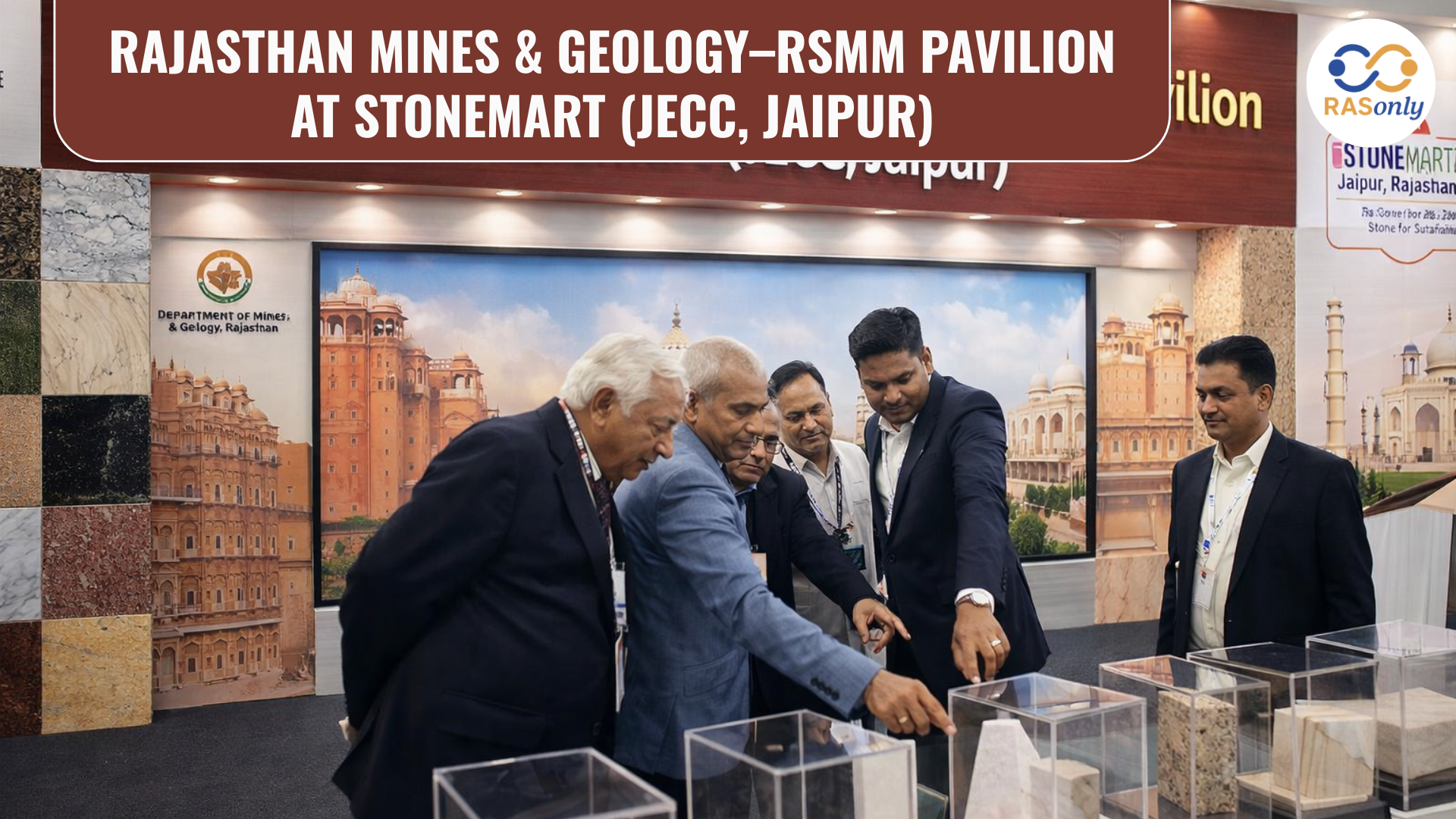
Rajasthan Pavilion Shines at Stone Mart Jaipur 2026
February 07, 2026
Rajasthan Achieves 3,000 MW Under PM-KUSUM Scheme
February 07, 2026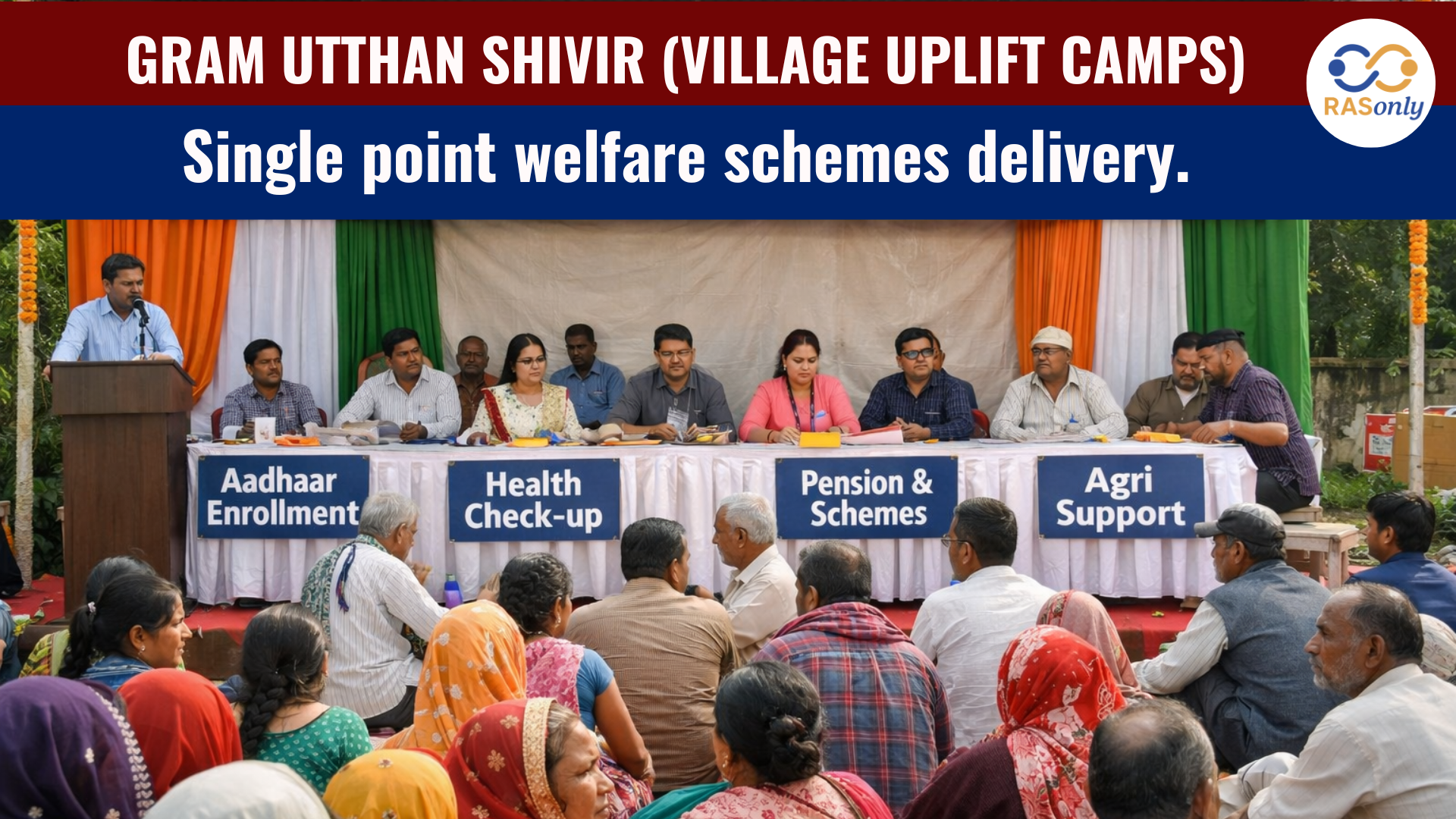
Gram Utthan Shivirs Strengthen Rural Governance in Rajasthan
February 07, 2026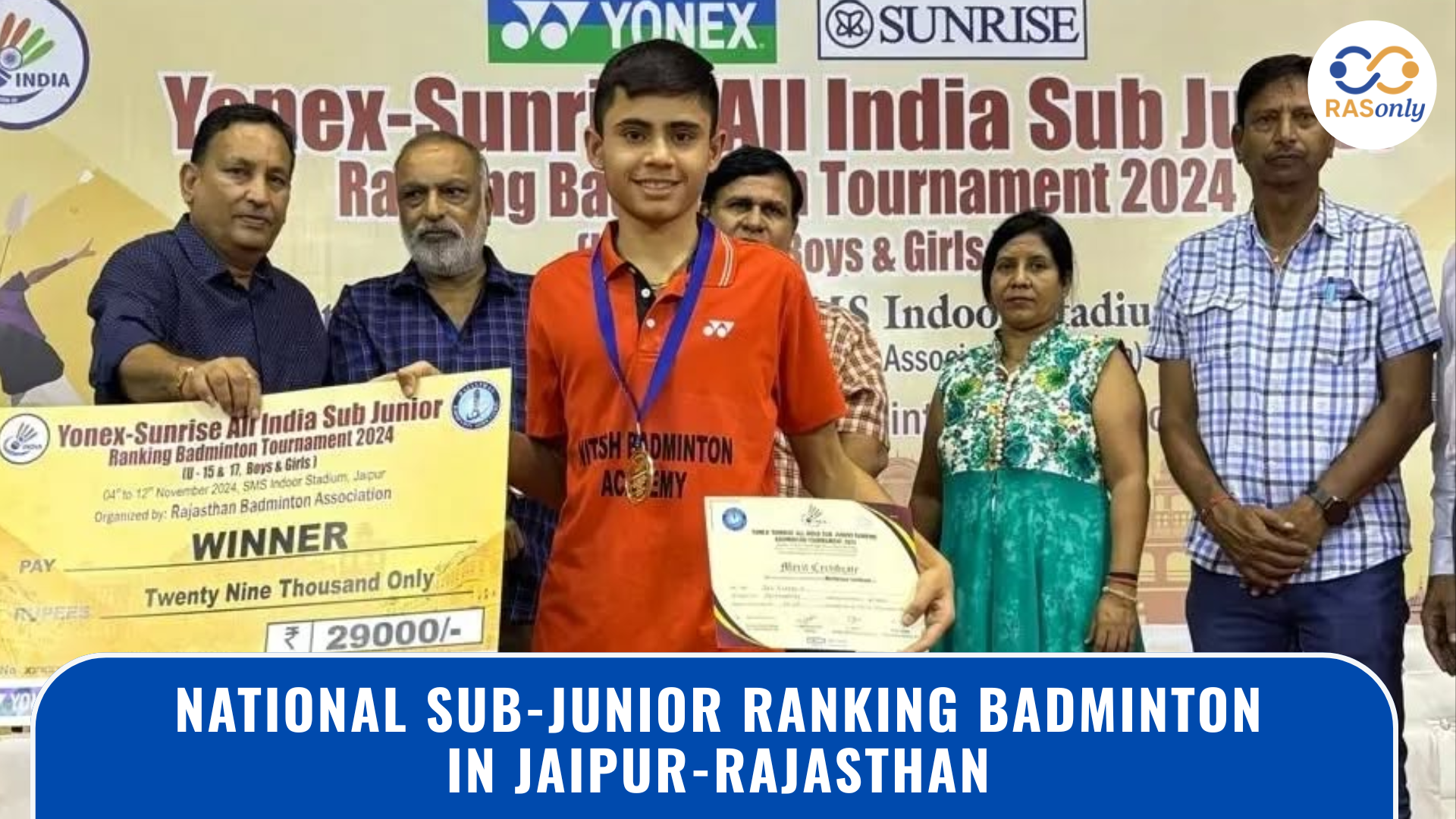
Jaipur Badminton: 72-Minute U-15 Final Creates Record
February 06, 2026👉🏻 Register Today to Join Classes! 👍🏻
- Team RASOnly -
🎯 Benefits of RASOnly Coaching:
- ✅ 1:1 Mentorship with RAS Officers
- ✅ Experienced and Expert Faculty
- ✅ Free Library Access
- ✅ Daily Minimum 4 Hours Must
- ✅ Comprehensive Study Material
- ✅ Regular Tests & Performance Analysis
- ✅ Personalized Guidance & Doubt Solving
- ✅ Online & Offline Class Options
- ✅ Affordable Fees with Quality Education
Key Highlights:
- 👉🏻 3-Day Refund Policy
- 👉🏻 New Batch Starting from 04 August
- 👉🏻 Registration Amount: Only ₹1000

